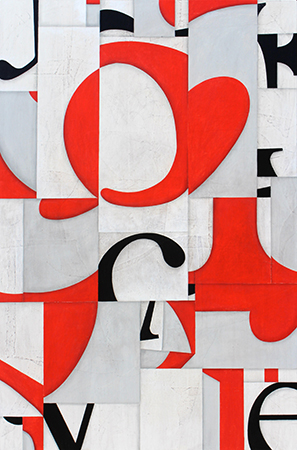Traversing B/Orders of English in the Academic Writing Classroom
DOI:
https://doi.org/10.25071/1925-5624.40332Keywords:
pedagogy, academic writing, intralingual translation, Standard English, linguistic differenceAbstract
In line with current discussions in the field of critical composition studies urging us to identify pedagogical approaches that engage the multilingual and multidialectal competencies of our students, this paper mines the pedagogical potential of the concept of translation in the composition classroom. Specifically, it presents a pedagogical exercise in intralingual translation that asks students to explicitly and deliberately place Standard English in conversation—and in tension—with varieties of English drawn from their own linguistic repertoires. Through a close reading of the students’ translative practices, we showcase their compositional competencies as they engage with and transform the rhetorical, stylistic, and grammatical registers of the source text.References
Barthes, Roland. The Neutral: Lecture Course at the Collège de France. Translated by Rosalind E. Krauss, Columbia University Press, 2005.
Bourdieu, Pierre. Language and Symbolic Power. Harvard University Press, 1991.
Browne, H. “Translation of Augustine’s Homily 7 on the First Epistle of John.” From Nicene and Post-Nicene Fathers, First Series, Vol. 7. edited by Philip Schaff, Christian Literature Publishing Company, 1888, pp. 459-529.
Canagarajah, Suresh. “Codemeshing in Academic Writing: Identifying Teachable Strategies of Translanguaging.” The Modern Language Journal, vol. 95, 2011, pp. 401-417. DOI: https://doi.org/10.1111/j.1540-4781.2011.01207.x
Chesterman, Andrew. Memes of Translation: The Spread of Ideas in Translation Theory. John Benjamins, 1997. DOI: https://doi.org/10.1075/btl.22
Christakos, Margaret. Multitudes. Coach House Books, 2013.
Creese, Angela, and Adrian Blackledge. “Translanguaging in the Bilingual Classroom: A Pedagogy for Learning and Teaching?” The Modern Language Journal, vol. 95, 2010, pp. 103–115. DOI: https://doi.org/10.1111/j.1540-4781.2009.00986.x
Derrida, Jacques. “Des Tours de Babel.” Difference in Translation, edited by Joseph Graham, Cornell University Press, 1985, pp. 209–48.
Derrida, Jacques. Monolingualism of the Other, or, The Prosthesis of Origin. Translated by Patrick Mensah, Stanford University Press, 1998.
Derrida, Jacques. Specters of Marx: The State of Debt, the Work of Mourning and the New International. Translated by Peggy Kamuf, Routledge, 2006.
Foster Wallace, David. “Authority and American Usage.” Consider the Lobster and Other Essays. Little, Brown, 2005.
Foster Wallace, David. Conversations with David Foster Wallace. Edited by Stephen J. Burn, University Press of Mississippi, 2012.
Freire, Paulo. Pedagogy of the Oppressed. Herder and Herder, 1972.
García, Ofelia. “Emergent Bilinguals and TESOL: What's in a Name?” TESOL Quarterly, vol. 43, no. 2, 2009, pp. 322-326. DOI: https://doi.org/10.1002/j.1545-7249.2009.tb00172.x
García, Ofelia, and Li Wei. Translanguaging: Language, Bilingualism and Education. Palgrave Macmillan, 2013 DOI: https://doi.org/10.1057/9781137385765_4
Hermans, Theo. “Translation as Institution.” Translation as Intercultural Communication: Selected Papers from the EST Congress, Prague 1995, edited by Mary Snell- Hornby, Zuzana Jettmarova, and Klaus Kaindi, John Benjamins, 1995, pp. 3-20. DOI: https://doi.org/10.1075/btl.20.03her
hooks, bell. Outlaw Culture: Resisting Representations. Routledge, 1994.
Jakobson, Roman. “On Linguistic Aspects of Translation.” The Translation Studies Reader, edited by Lawrence Venuti, Routledge, 2000, pp. 113-18.
Korning Zethsen, Karen. “Beyond Translation Proper—Extending the Field of Translation Studies.” TTR, vol. 201, 2007. pp. 281–308 DOI: https://doi.org/10.7202/018506ar
Korning Zethsen, Karen, and Aage Hill-Madsen. “Intralingual Translation and its Place within Translation Studies.” Meta, vol. 63, 2016, pp. 692-708. DOI: https://doi.org/10.7202/1039225ar
Lin, Angel, and Peter Martin, editors. Decolonisation, Globalisation: Language-in- Education Policy and Practice. Multilingual Matters, 2005. DOI: https://doi.org/10.21832/9781853598265
Lu, Min-Zhan and Bruce Horner. “Introduction: Translingual Work.” College English, vol. 78, no. 3, 2016, pp. 207-18.
Matsuda, Paul. “The Myth of Linguistic Homogeneity in U.S. College Composition. ”College English, vol. 68, no. 6, 2006, pp. 637-651. DOI: https://doi.org/10.2307/25472180
Mura, David. “White Writing Teachers (or David Foster Wallace vs. James Baldwin).”Journal of Creative Writing Studies, vol. 1, no. 1, 2016, pp. 1-15.
Newmark, Peter. About Translation. Multilingual Matters, 1991.
Nien-Ming Chʻien, Evelyn. Weird English. Harvard University Press, 2004.
Pessoa, Fernando. The Book of Disquiet. Translated by Richard Zenith, Penguin Books, 2003.
Ranciere, Jacques. The Ignorant Schoolmaster: Five Lessons in Intellectual Emancipation. Translated by Kristin Ross, Stanford University Press, 1991.
Said, Edward. “Figures, Configurations, Transfigurations.” From Commonwealth to Post-Colonial, edited by Anna Rutherford, Dangaroo, 1992, pp. 3-17.
Schmid, Benjamin. “A Duck in Rabbit’s Clothing: Integrating Intralingual Translation.”Das Entenprinzip: Translation aus neuen Perspektiven, edited by Michele Kaiser- Cooke, Peter Lang, 2008, pp. 19-80.
Schubert, Klaus. “Translation Studies: Broaden or Deepen the Perspective?” Knowledge Systems and Translation, edited by Helle V. Dam, Jan Engberg, and Heidrun Gerzymisch-Arbogast, Walter de Gruyter, 2005, pp. 125-146.
Steiner, George. After Babel: Aspects of Language and Translation. Oxford University Press, 1992.
Stergiopoulou, Katerina. “Between the Lines: Seferis Anti-Writing Pound's Homer.”Comparative Literature, vol. 66, no. 4, 2014, pp. 375-398. DOI: https://doi.org/10.1215/00104124-2823844
Todorov, Tzvetan. "Bilingualism, Dialogism and Schizophrenia." New Formations, vol. 17, 1992, pp. 17-25.
Toury, Gideon. Descriptive Translation Studies and Beyond. John Benjamins, 1995. DOI: https://doi.org/10.1075/btl.4
Downloads
How to Cite
Issue
Section
License

This work is licensed under a Creative Commons Attribution-NonCommercial-NoDerivs 3.0 Unported License.

